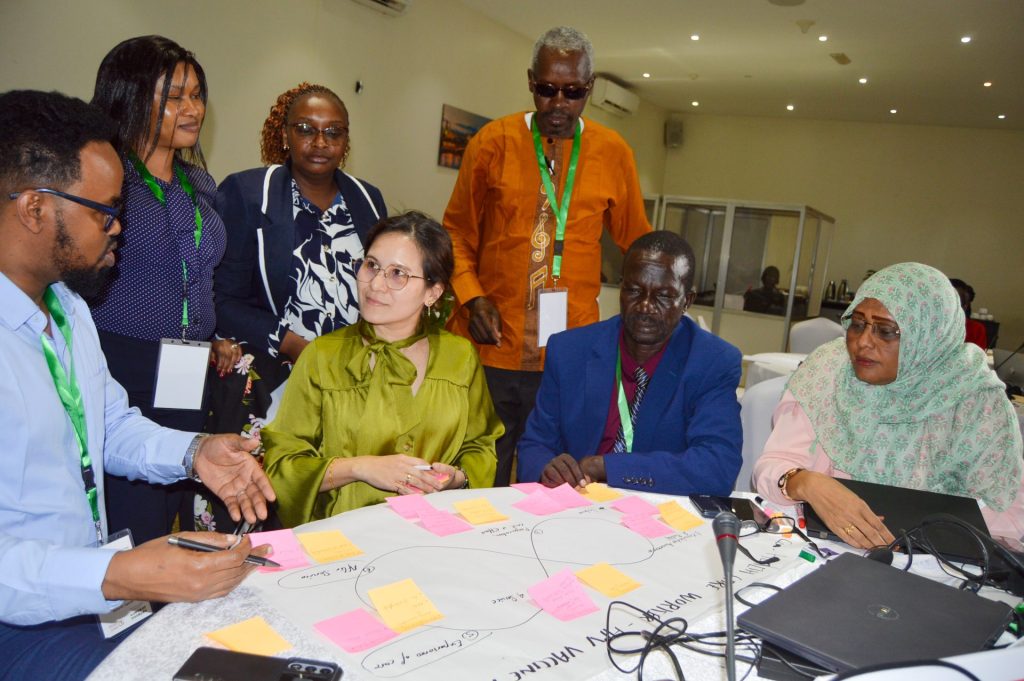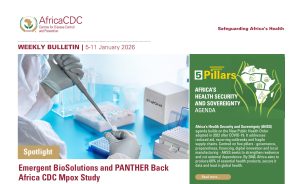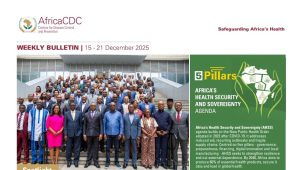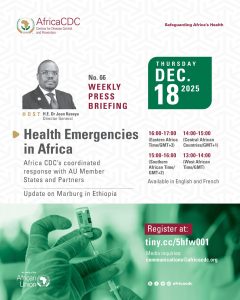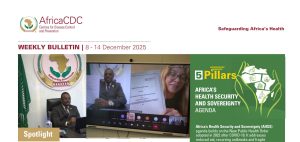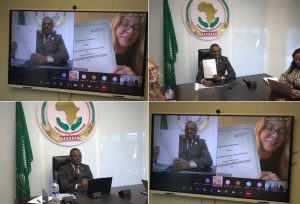At sunrise in Luweero District in Uganda, Israel Katumba, a Community Health Extension Worker, sets off on his bicycle. He carries a blood pressure machine, referral forms, and a tablet that links him to the Ministry of Health’s electronic reporting system. For the families he visits, he is more than a health worker — he is a neighbour they trust, someone who can test for malaria, guide them through immunisation, or connect them to an ambulance in an emergency. He also supervises the work of the Village Health Teams in his parish, ensuring no household is left behind. Village Health Teams consist of community members trained to promote health, provide basic health education, manage common illnesses, and refer sick individuals to formal health-care facilities at the household level.
Voices like this set the tone for the Regional Risk Communication and Community Engagement (RCCE) Capacity Strengthening Workshop, held in Kampala from 9 to 12 September 2025 under the Saving Lives and Livelihoods initiative — a partnership between Africa CDC and the Mastercard Foundation. The workshop brought together health promotion directors and RCCE focal persons from 13 Eastern Africa Member States, along with partners from the International Federation of Red Cross and Red Crescent Societies, Uganda Red Cross Society, and the UK Public Health Rapid Support Team.
Representing the Director-General, Ministry of Health, Uganda, Dr Joseph Okware welcomed participants, recalling lessons from Ebola, COVID-19, and mpox. “Communities are not just recipients of information; they are partners in the response. When we listen to them, our health systems become stronger,” he said.
“Health systems are only as strong as the trust they earn. When we listen to communities, understand their fears, and act with empathy and evidence, we do more than deliver interventions — we save lives and transform societies,” echoed Dr Mazyanga Lucy Mazaba, Africa CDC Eastern Africa RCCE Regional Director.
A panel of Community Health Extension Workers (CHEWs) — frontline health-care providers who work in their local communities to deliver essential health services, provide health education, and serve as a crucial link between communities and formal health systems — brought those words to life during the workshop. CHEWs supervise Village Health Teams, conduct household mapping, and support referral pathways for severe cases of malaria, pneumonia, and diarrhoea. “We mobilise families for immunisation, screen for hypertension and diabetes, conduct nutrition checks for pregnant mothers, and offer psychosocial support, including mental health screening with PHQ-9 tools — a multipurpose instrument for screening, diagnosing, monitoring, and measuring the severity of depression,” one CHEW said.
Others, in the course of their duties, have responded to outbreaks — going door to door with Village Health Teams to educate communities about mpox or Ebola, and teaching simple infection prevention practices. “I am their neighbour first and a health worker second,” one CHEW said, showing the bonds created through working with communities.
Alongside these stories, participants strengthened their skills in collecting, analysing, and applying social and behavioural data, learning how these insights can be used to design trusted, evidence-based health programmes. They also explored how to integrate gender into RCCE, recognising the barriers women and vulnerable groups face and the need for gender-responsive approaches to improve vaccine uptake.
The first Eastern Africa RCCE Community of Practice Regional Committee members were elected by participants, ensuring that the region’s realities and innovations help shape the continental RCCE agenda. The committee will be led by Kenya’s Wycliffe Matini as Chair, with Uganda’s Tabley Bakyaita serving as Vice-Chair and Djibouti’s Abdillahi Aye Samod as Secretary. They are joined by Seychelles’ Betty-May Bibi and Somalia’s Khadar Mohamud as members, while Uganda’s Edward Muganga will take on the role of Monitoring and Evaluation Officer. Together, this team reflects the region’s collective commitment to strengthening health promotion, risk communication, and community engagement for social and behavioural change.
Participants moved from theory to practice on the final day. At the National Public Health Laboratories and Diagnostic Services, they saw how Uganda’s electronic Community Health Information System (eCHIS) links over 21,000 community health workers, including CHEWs, to national platforms for real-time data and decision-making. At the Ministry of Health Call Centre, they observed how the 24-hour, seven-day-a-week service provides health information, manages rumours, and captures community feedback, closing the loop between citizens and the health system.
By the close of the workshop, participants agreed that the lessons shared and witnessed extended far beyond immunisation. “We all face different challenges, but the principles are the same. This exchange showed us how we can adapt ideas and strengthen RCCE in our own contexts,” said one delegate from Seychelles.
The workshop confirmed that resilient health systems are built on the trust between communities and those who serve them. At the centre of that trust are Uganda’s Community Health Extension Workers — frontline staff who carry the weight of both professional responsibility and neighbourly care. “The use of social and behavioural data in health programmes, drawn directly from community voices, is what ultimately makes interventions trusted and effective,” said Dr Mazaba.

